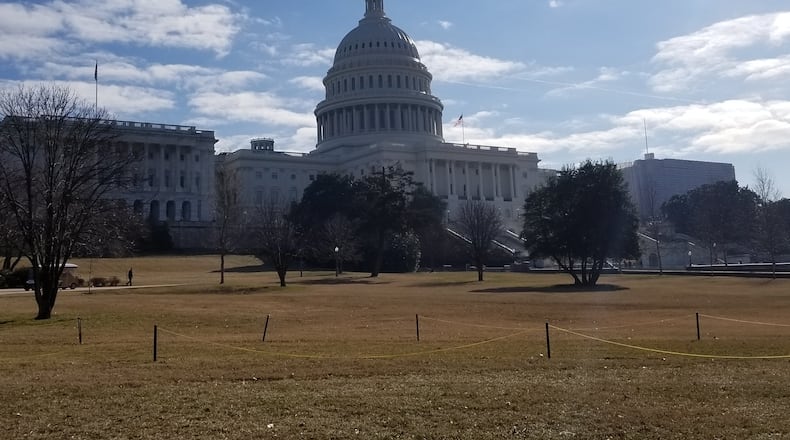So far, Pentagon officials have only said that they are engaged in a 'deliberate decision path' on money approved for military construction by the Congress, while ruling out cuts to any resources which would have gone for military housing, already an area which needs extra Pentagon resources.
"I want to stress the Department will not consider any family housing or barracks projects as funding sources," for the wall, said Alex Beehler, an assistant Secretary of the Army at a House hearing last week.
My letter to the @ActingSecDef on military construction projects ⬇️ pic.twitter.com/WufmH0UEzF
— Martha McSally (@SenMcSallyAZ) March 4, 2019
McSally's letter was emblematic of the concern in both parties - whether or not individual lawmakers support money for a border wall - that the move by the President to switch $3.6 billion away from already approved military construction projects might slash funds for work at a home state base.
"As I have voiced to this Administration repeatedly, I strongly believe securing our border should not be done at the expense of previously funded military construction projects," said Rep. Mike Turner (R-OH), whose district is home to millions in planned new spending at Wright Patterson Air Force Base.
For 2019, Congress approved $10.3 billion in military construction funding for defense installations in 38 different states, and at least 14 overseas locations, some of which are U.S. possessions.
Last week, the House approved a one page resolution to block the President's effort to siphon away that military construction money - it's now expected that enough Republicans will back the plan in the Senate to approve it, sending it on to the President - who has vowed a veto.
#RandPaul Says There Will Be 10 Republican Senators Who Vote Against Trump’s #NationalEmergency Declaration https://t.co/EqJ4JjTlVZ pic.twitter.com/lZPQ1bYxdN
— Rich Mitchell (@CDNnow) March 4, 2019
With enough votes now in the Senate to block President Donald Trump's national amergency declaration to bypass lawmakers and funnel more money to construction of a border wall, lawmakers in both parties continue to demand the specifics from the Trump Administration and the Pentagon on what military projects will be cut in order to pay for the wall.
"What is clear in the Senate is that there will be enough votes to a resolution of disapproval," said Senate Majority Leader Mitch McConnell on Monday.
That came as McConnell's colleague, Sen. Rand Paul (R-KY), made clear he would vote against the President, telling reporters that at least 10 GOP Senators might ultimately vote against the President's move to bypass the Congress.
"Every single Republican I know decried President Obama’s use of executive power to legislate. We were right then," Paul wrote on Monday. "But the only way to be an honest officeholder is to stand up for the same principles no matter who is in power."
About the Author
